13 Feb 2020
New international society to promote systems thinking and collaborative approach to sustainability
Knowledge exchange platform will encourage cross-disciplinary and cross-sectoral activities
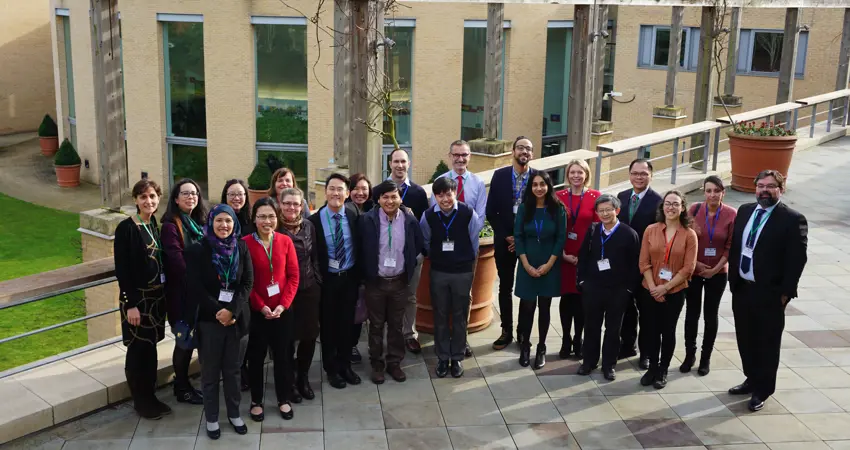
A new international Society of Circular, Regenerative and Sustainable Systems (CRES) was officially launched at University of Oxford on 3rd February 2020, hosted at the Thatcher Business Education Centre, Saïd Business School.
This global initiative is founded and led by Dr Kok Siew Ng from the Department of Engineering Science together with an interdisciplinary team formed by a group of passionate academic researchers and industry practitioners. CRES is built upon the UK and international network from the SYNERGORS consortium which is funded by UKRI/NERC through the Industrial Innovation Fellowship programme.
CRES has been established as a knowledge exchange platform to promote systems thinking and circular economy through a collaborative approach. CRES’s vision is to create a supporting environment for cross-disciplinary and cross-sectoral activities that promote the development and implementation of innovative ideas to address complex global issues, using a systems approach. CRES has the mission of bringing together academia, industry, government and society in order to integrate systems thinking into decision-making.
25 representatives from the UK, Malaysia, Mexico, Thailand, Brazil and the Netherlands were invited to the launch event of the society to enable joint cross-disciplinary and cross-sectoral discussions, aiming to initiate conversation among different stakeholders to address global complex issues. A series of keynote seminars provided insights into a systems thinking approach, followed by a breakout session in the afternoon to understand how CRES could help address various challenges in sustainable development; what are the broad gaps in knowledge and expertise regarding circular, regenerative and sustainable systems; and to what extent systems thinking has been embedded in academic engineering degrees and in decision-making in industry, government and society.
Dr Ng says, “There is a pressing need to overcome the communication barrier across various disciplines and sectors as conventional approaches are not always effective in resolving problems. Systems thinking is crucial in addressing global challenges such as resource management – we need to integrate our knowledge and expertise from various disciplines and sectors and solve the problems together at a global scale. “Continuity” is the key in sustaining our research efforts and creating long-term impacts.”
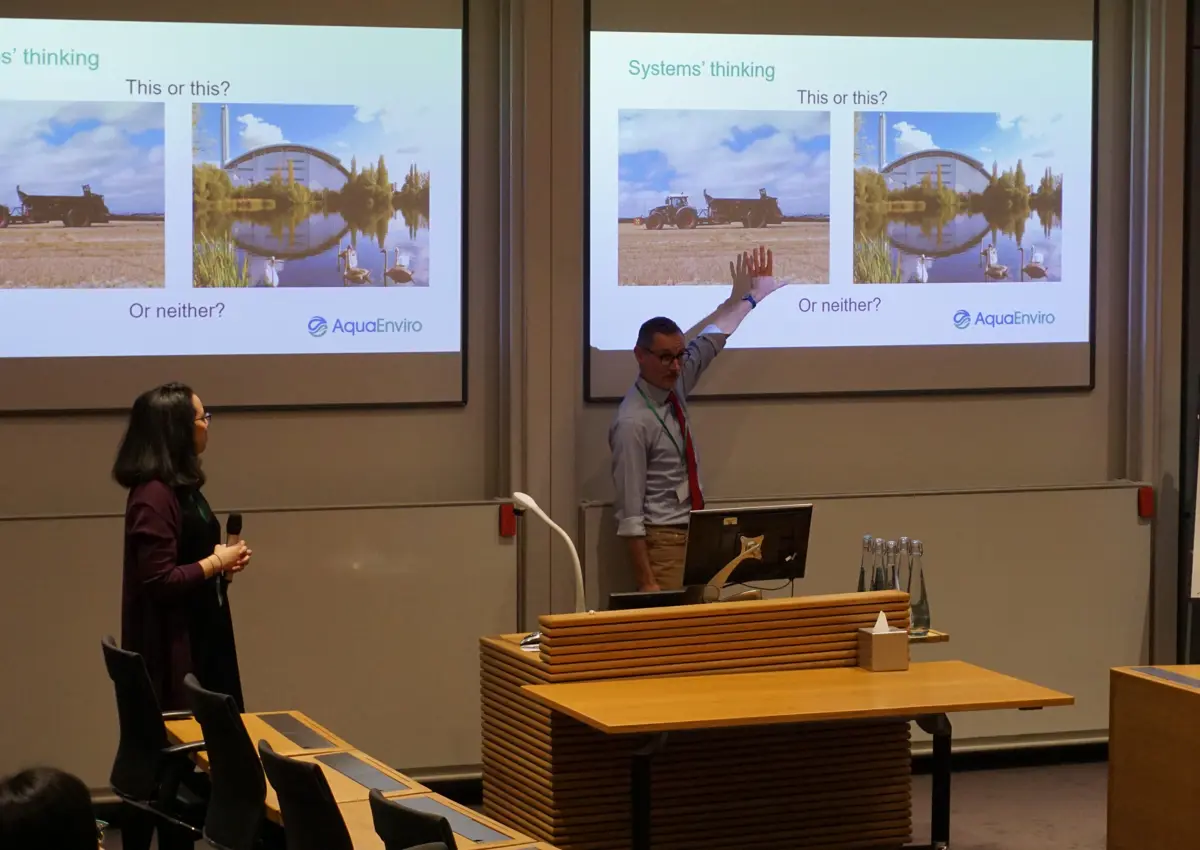
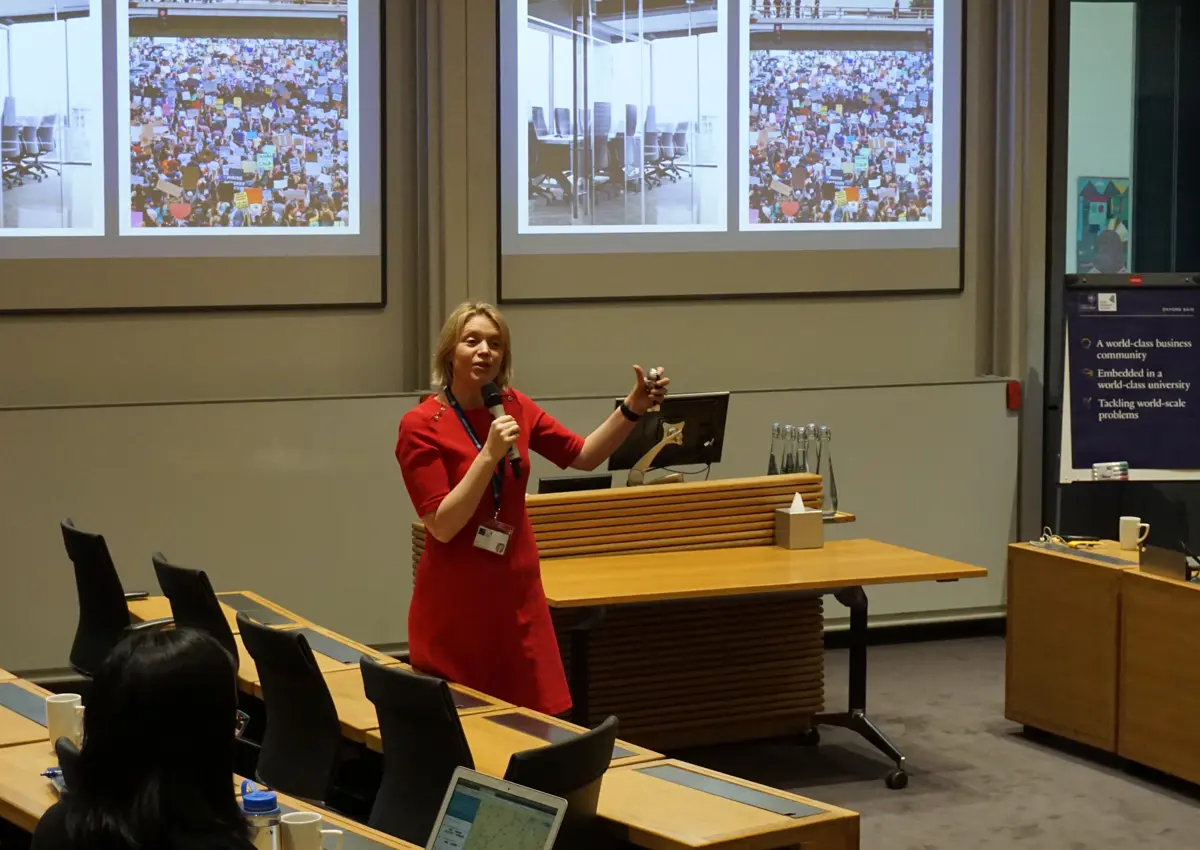
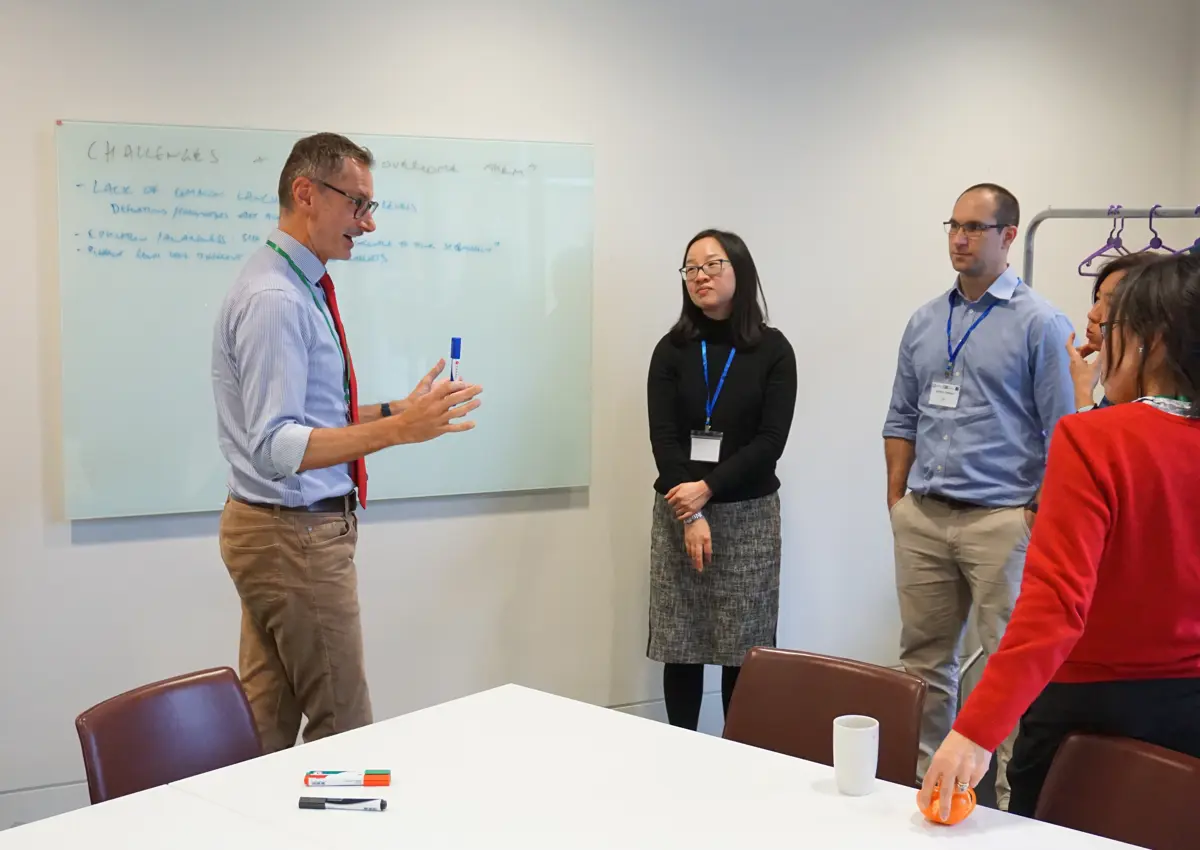
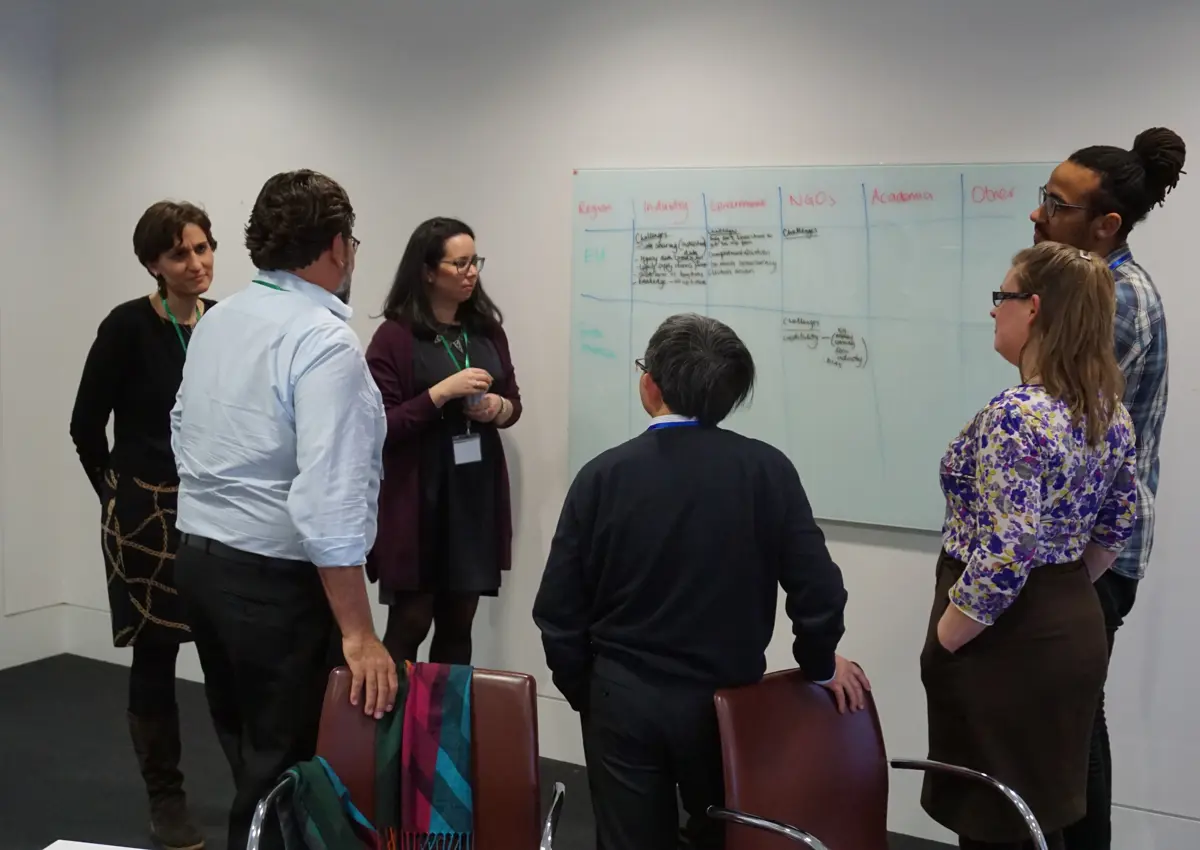
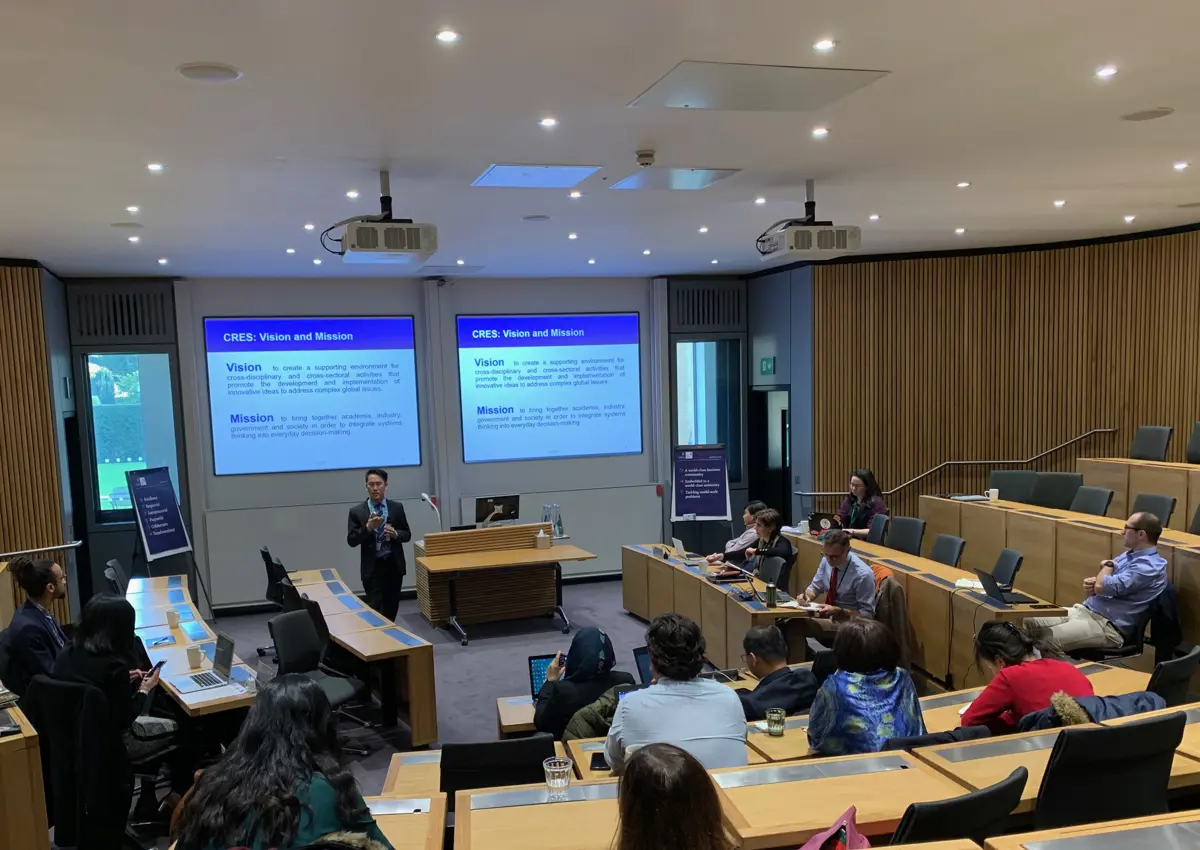
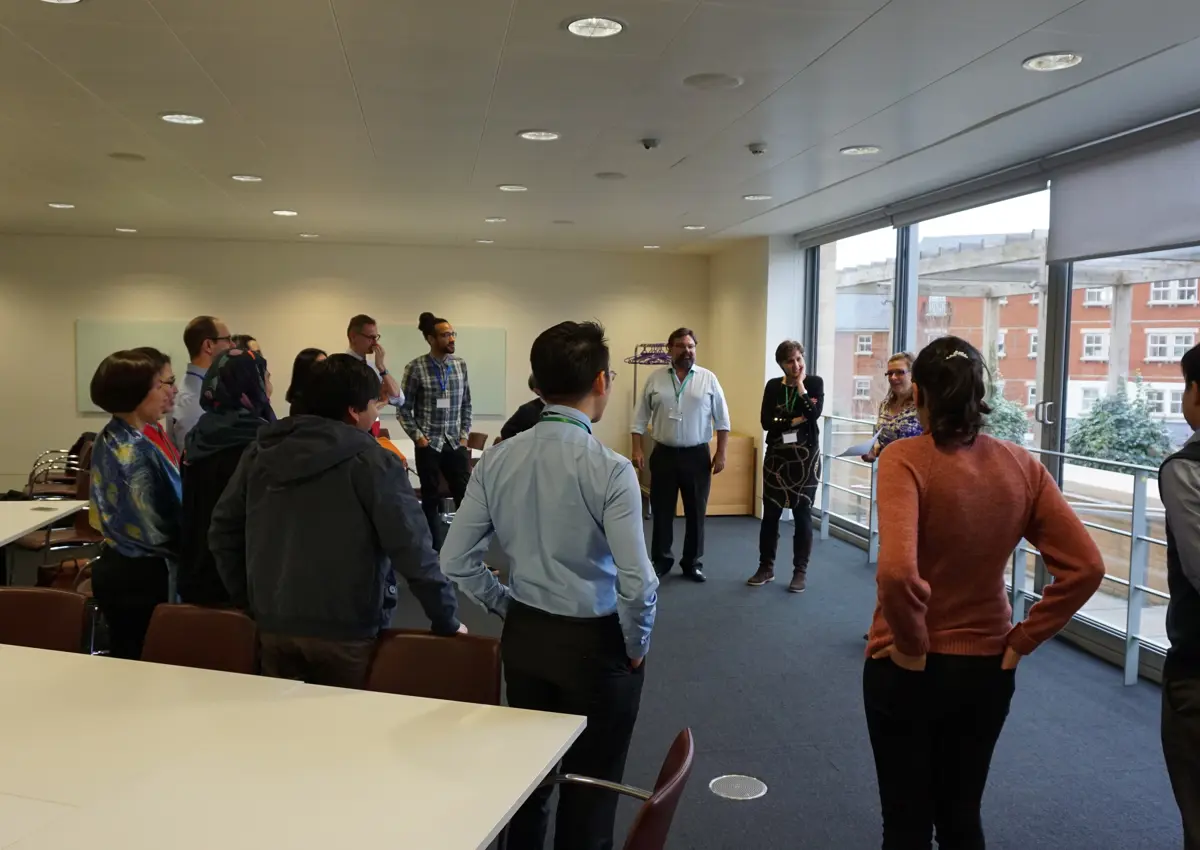
The SYNERGORS Project
The SYNERGORS project (“A systems approach to synergistic utilisation of secondary organic streams”), funded by the Natural Environment Research Council (NERC), is led by Dr Kok Siew Ng from Department of Engineering Science. The project aims to develop new systems approaches and decision-making tools for promoting resource recovery from secondary organic waste streams including fossil (e.g. used plastics) and biomass-derived waste (e.g. food waste, residual biomass). SYNERGORS will provide significant insights into various options for organic waste reduction and utilisation, and propose viable business models to attract stakeholders in the commercial sectors to invest in these areas. Furthermore, the research will address various socio-environmental challenges faced by human and living communities, the rising global demands in energy and commodities, and lessening burdens on the landfill, water and atmosphere. It is envisaged that the outcomes from this project (e.g. decision-making tool and roadmap) can be adopted in the UK and other countries in improving the policies and practices in relation to organic waste management. The objectives of the project are well aligned with the UK Industrial Strategy in enhancing resource efficiency while achieving a sustainable industrial growth and a more resilient economy. The project has received support from a number of UK and international organisations (academia, industry and government), providing multidisciplinary expertise to address the global challenges in waste management.
Acknowledgement
Dr Ng would like to express his gratitude to the National Environment Research Council (NERC), now part of the UK Research and Innovation (UKRI) for their invaluable support for this initiative. The British Council and Royal Academy of Engineering are also acknowledged as initial collaborations between the UK and Malaysia, Mexico, Brazil and Thailand were first established through the Newton Fund Researcher Links Workshop and the Global Challenges Research Fund (GCRF) Frontiers of Development symposium. The current fellowship project funded by NERC has enabled further collaboration to be sustained for the next few years.
The CRES website is currently under development and is expected to launch in early April.




